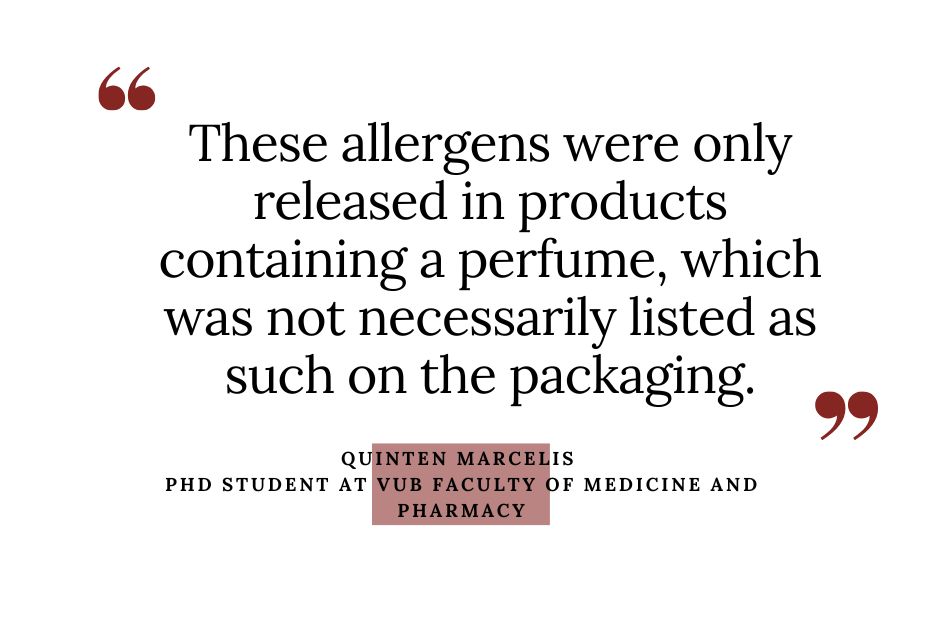PhD research conducted in the VUB indicated that some tampons and sanitary pads contain allergens that are released when used. Allergens are substances that can cause an allergic reaction.
The research, conducted by the research group In Vitro Toxicology and Dermato-cosmetology and led by Professor Tamara Vanhaecke, explained that, since the labelling of scented menstrual hygiene products is not mandatory, women might be unknowingly exposed to allergens.
Allergic contact dermatitis (ACD) often associated with the topical use of perfumed products, remains one of the most common chronic skin disorders in Western countries, according to the research.
Perfumed products not always labelled as such
According to PhD student Quinten Marcelis of the VUB Faculty of Medicine and Pharmacy, sufficient evidence was found during the laboratory simulations regarding the release of allergens.
"In cosmetics, there is a list of 26 frequently occurring allergens that must be listed on the packaging when a limit concentration is exceeded. Of those 26, I was able to demonstrate four with certainty, one of which was in a concentration that might induce sensitivity," he said.
"Some brands then put words like 'fresh' on the packaging without going into detail about which substances were involved."
Marcelis also looked at whether hormone-disrupting substances were released from the products or whether colouring could cause problems. For these substances, the tested products proved safe.
Related News
- World first: Scotland provides free menstrual products from today
- Could menstrual leave become the norm in Europe?
"It seems normal to me that, in addition to the strict legislation for cosmetics, work should now be done on legislation for feminine hygiene products used during menstruation," Marcelis said.
"For people who have a greater sensitivity to certain allergens, I would already recommend not buying products containing perfumes or where the packaging gives the illusion that they do."
The study concluded that labelling of allergens on scented menstrual hygiene products would help consumers to prevent adverse effects linked to ACD.


